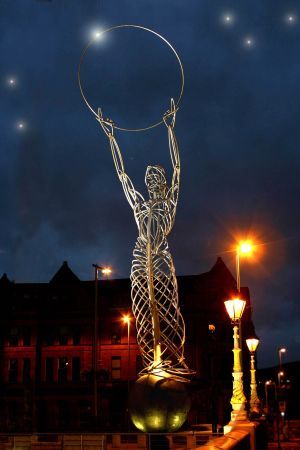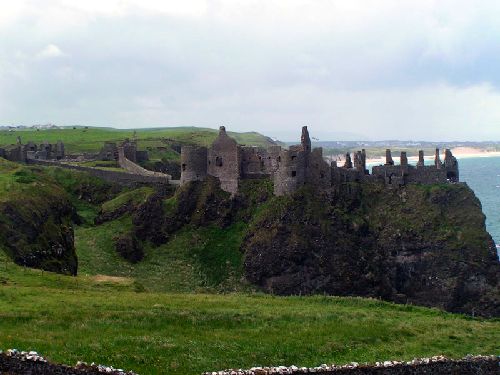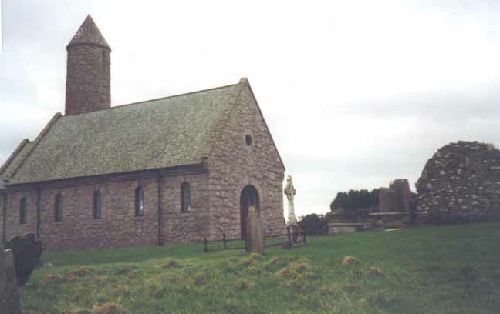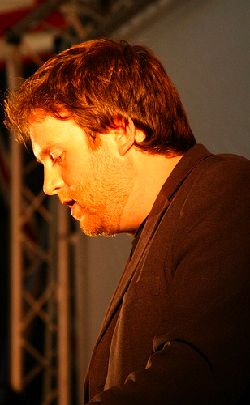 Entering Belfast
Entering Belfast
I've mentioned before that Ian Morgan Cron (author of Chasing Francis: A Pilgrim’s Tale) and I (both of us pictured below - exuding gravitas, don't you think?) plan to facilitate a Contemplative Spirituality and Social Action experience in my home of northern Ireland this August. There are a few places left - so maybe this is an invitation for you.
Northern Ireland is a society birthed in deep spirituality and profound artistry; its stark and beautiful physical landscape parallels the ruggedness of the Celtic soul. We have, of course, also experienced civil conflict in the recent past, as the struggle over our identity and questions of social justice found expression in sectarianism and violence. Religion has played a role in both the conflict and the process that has led to enormous change and political stability.
 Dunluce Castle
Dunluce Castle
You’re invited to see this amazing place for yourself as part of a unique communal gathering in Summer 2010.
We’ll lead a week of intensive experiences – we’ll deconstruct and reimagine questions of spirituality and activism, trying to find the fingerprints of radical spirituality and make connections between an ancient landscape, a modern conflict, and a better way of being in whatever world each us will be returning to.

Our programme will include excellent speakers and conversation and enjoying the land, visiting centres of reconciliation and meeting participants in the conflict and the negotiations for peace, and enjoying everything the northern Irish culture has to offer in the evenings (which will of course include live music). We’ll use film and literature as lenses through which we explore the fusion of contemplation and action; there will be beer and whiskey for those who want it, fantastic Irish food, good craic and laughter, maybe even some surfing on the ridiculously entertaining waves of the North Coast. Ultimately, we hope that everyone who joins us will have a life-changing encounter.
 Saul Parish Church, near Downpatrick
Saul Parish Church, near Downpatrick
We’ll stay in the beautiful character-filled setting of Rostrevor; there will be visits to the city of Belfast, the Giant’s Causeway, Dunluce Castle, the Silent Valley and other amazing places; there will also be ample free time to explore on your own.
The retreat is open only to 15-25 people; all (home-cooked) meals will be provided. We'll be gathering from the evening of Tuesday 17th August, and working together until breakfast on Tuesday 24th. We've scheduled the retreat to coincide with Greenbelt, which begins on Friday 27th August, so there's time to explore more of Ireland for a few days before taking a quick flight over to England for the festival if you're planning to be there.
For now, if you’d like to register your interest (with no obligation), or if you have any questions, please fill in the form here, and we'll get back to you soon. We'll be asking for a deposit in the next month, but we're doing our best to keep costs lower than for other retreats of this nature.







